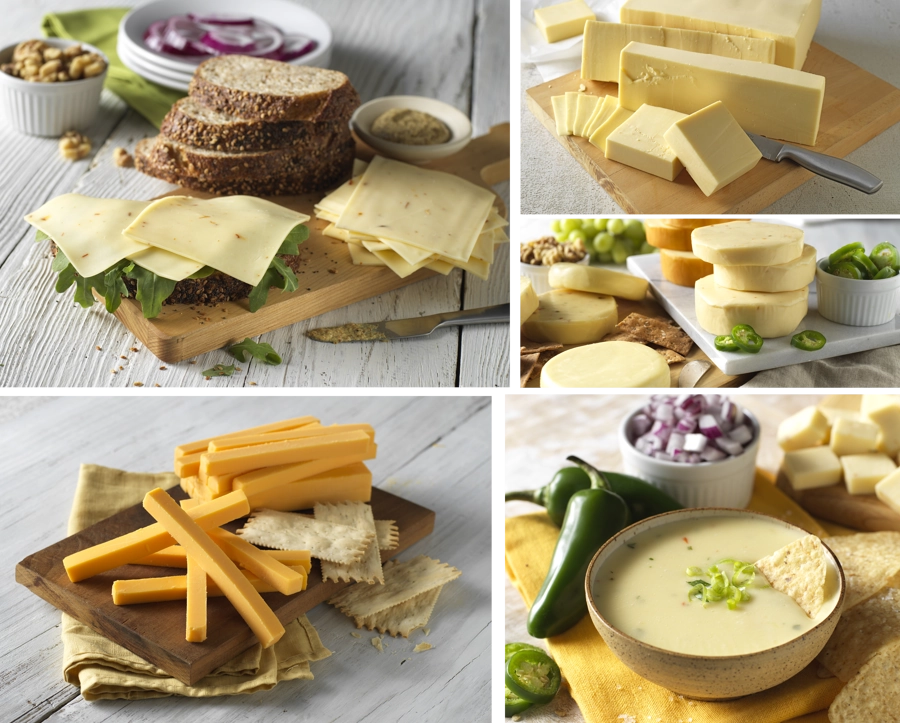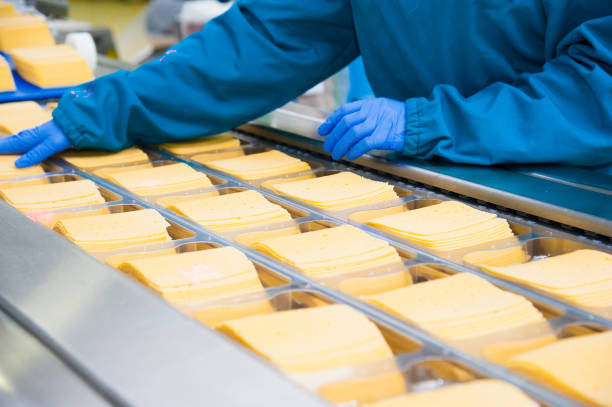Cheese Factory Melbourne: Experience the Art of Cheese
Cheese Factory Melbourne: Experience the Art of Cheese
Blog Article
An Extensive Appearance at Cheese Production: Ingredients, Techniques, and the Future of Artisan Cheeses
The intricate process of cheese manufacturing is a fascinating convergence of art and scientific research, where premium milk, rennet, and certain bacterial cultures work as foundational aspects. Typical methods, such as salting and aging, are complemented by contemporary advancements that reply to evolving consumer choices. As the industry progressively focuses on sustainability and openness, the future of artisan cheeses guarantees to mirror both heritage and progress. Recognizing the subtleties of these methods increases engaging questions concerning the direction of cheese production and its implications for top quality and credibility. What exists ahead in this developing landscape?
Trick Components in Cheese Manufacturing
A selection of important components play an essential duty in cheese production, each adding to the end product's flavor, appearance, and character. The main ingredient in cheese is milk, which can originate from different resources, consisting of cows, goats, and lamb - cheese makers melbourne. The kind of milk used significantly affects the cheese's taste and uniformity; for instance, cow's milk typically generates creamier cheeses, while goat's milk typically generates appetizing ranges
Another crucial active ingredient is rennet, an enzyme utilized to curdle the milk, dividing it into curds and whey. The resource of rennet can be animal, vegetable, or microbial, each imparting unique features to the cheese.
Salt not only boosts the taste yet also works as a chemical, inhibiting the growth of unwanted germs. In addition, different flavoring representatives, such as natural herbs, spices, and even smoked timber, can be included to produce one-of-a-kind artisanal cheeses. With each other, these components create the foundation of cheese manufacturing, setting the phase for varied and rich cheese varieties.
Conventional Cheese-Making Methods
Utilizing conventional cheese-making strategies, craftsmens around the globe maintain classic methods that have actually been given via generations. These strategies frequently emphasize using high-grade, in your area sourced milk, which is central to the special flavors and appearances of artisanal cheeses. The process normally begins with the careful home heating of milk, followed by the addition of societies and rennet to assist in coagulation.
As soon as the curds form, they are cut, enabling whey to drain pipes, a vital action that influences moisture material and appearance. Salting is a necessary facet of this procedure, enhancing flavor while likewise acting as a chemical.
Aging, or affinage, is an additional crucial element, throughout which cheeses create their particular fragrances and tastes. Artisans might employ specific maturing settings, using humidity and temperature level controls to refine the navigate to this website cheese's profile. The commitment to these conventional techniques not just supports regional economies yet additionally adds to the rich variety of cheese selections found globally, celebrating social heritage and artisanal craftsmanship.
Modern Innovations in Cheese Manufacturing
Just how have technical improvements changed cheese production in recent years? The integration of contemporary technology has actually transformed both the performance and high quality of cheese production.
In addition, advancements in microbiology have allowed cheesemakers to choose particular microbial cultures and enzymes, optimizing taste profiles and enhancing shelf life. Making use of sensing unit technology for keeping track of fermentation problems has also ended up being common, enabling for real-time adjustments to keep ideal environments for cheese aging.

These advancements not only enhance the quality and sustainability of cheese manufacturing but additionally encourage artisan producers to keep standard tastes while welcoming modern-day performance. As innovation continues to progress, the future of site here cheese production looks appealing, blending custom with development.
The Duty of Terroir in Cheese
In the realm of cheese production, terroir plays a critical function in specifying the unique characteristics of various cheeses. Terroir, a French term commonly connected with red wine, encompasses the environmental factors that affect agricultural products, including soil structure, environment, and neighborhood flora and fauna. In cheese-making, the one-of-a-kind features of the area where the milk is sourced can impart details flavors and textures to the end product.
As an example, the grazing conditions of dairy animals substantially affect the milk's make-up, influenced by the kinds of turfs and natural herbs readily available in a specific area. This differs not just in between countries but likewise between areas within the very same nation. Furthermore, the microbial areas present in the environment add to the fermentation procedures, resulting in diverse accounts in taste and aroma.
Cheeses such as Roquefort, Parmigiano-Reggiano, and Cheddar exhibit exactly how terroir can shape their identifications, making them distinctive and often safeguarded by geographical signs. As manufacturers increasingly identify the significance of terroir, there is a growing emphasis on sourcing regional components and maintaining typical methods, making certain that each cheese really shows its origin.

Future Trends in Craftsmen Cheeses
A noteworthy change is taking place in the artisan cheese field, driven by advancing customer Continued preferences and technical innovations. Increasingly, customers are being attracted towards one-of-a-kind, high-quality items that stress both sustainability and local sourcing - cheese makers melbourne. This trend is triggering artisan cheesemakers to introduce, concentrating on small-batch manufacturing and the usage of traditional techniques while integrating modern innovation to improve high quality and safety
Additionally, there is an expanding rate of interest in plant-based and different milk items, pushing typical cheesemakers to discover new methods, such as cashew or almond-based cheeses. This change not just satisfies nutritional limitations but likewise straightens with environmental problems relating to pet farming.
Furthermore, transparency in sourcing and manufacturing processes is coming to be extremely important. Consumers are extra enlightened and need traceability, prompting producers to adopt clearer labeling methods and engage in storytelling that highlights their techniques and worths.
Verdict
To conclude, the detailed process of cheese manufacturing melds typical techniques with contemporary advancements, resulting in a varied array of flavors and appearances. The emphasis on top notch active ingredients and the influence of terroir emphasize the creativity involved in cheese production. As the market advances, a focus on sustainability and transparency will likely form the future of artisan cheeses, satisfying a progressively discerning consumer base that values authenticity and craftsmanship in dairy products.
Report this page